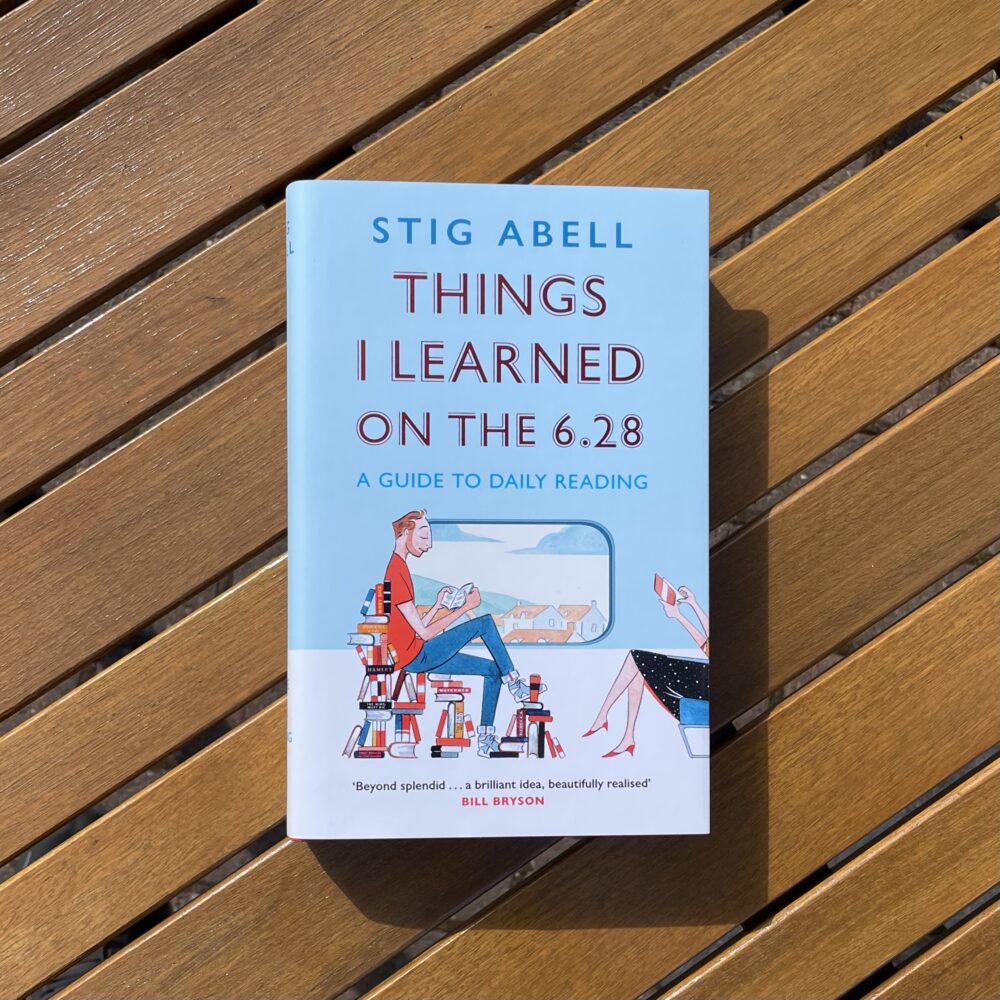I’ve been reading ‘Things I Learned on the 6.28’ by Stig Abell

In 2019, the journalist and (then) editor of the Times Literary Supplement, Stig Abell, decided to write a diary of the books that he read on the train to work. This book is a collection of those diary entries, mostly focusing on the books, but also on some significant events in his life and in the news.
I didn’t really enjoy this. I think this was a problem of the medium more than anything else: this felt like a blog that had been printed and bound. It felt performative rather than introspective. I like reading this sort of thing in small chunks online, but reading a year’s worth of one person’s slightly random thoughts about a slightly random selection of books in one go is a bit much.
Some of Abell’s observations were interesting and some of his anecdotes were genuinely amusing, but this just didn’t feel like a particularly coherent whole to me.
Nevertheless, here are some quotations I enjoyed:
My emails—unlike my spoken words—have become a nauseating thicket of exclamation marks: ‘Hi! Thanks!’ Sounds Good!’ and so on. Exclamation marks, those miniature distress flares of chumminess, are awful, I know they are awful, and yet the medium seems to compel their usage.
A quick check of my manuscript so far shows I have used more than 620 semicolons, at a rate of about one every 180 words. Herman Melville would be scoffing right now: he used one every 52. The final word, though, on all this (as it does in the TLS article) must go to Irvine Welsh, a fine exponent of the semicolon: ‘I’ve no feelings about it—it’s just there. People actually get worked up about that kind of thing, do they? I don’t fucking believe it. They should get a fucking life or a proper job. They’ve got too much time on their hands, to think about nonsense.’
I do think it can be risky to over-fetishise books, and I am always suspicious of people who want to preserve them in sterile perfection. I constantly scribble on or bend or drop in the bath things I am reading. And I don’t mind seeing the surface damage of prior readings. Sylvia Plath would not agree. She once lent someone a book, and got it back a bit torn. This was her diary entry: ‘It was so horrifying and it was as if my children had been raped or beaten by an alien.’ Which we can all agree is an over-reaction, I think.
I have a theory (I always have a theory) that there are three main things in life: family; work; friends. And it is possible to do only two of them well. So I am friendless, in that I spend no time socialising with people outside work or family. My colleagues and my family have become my friends in a sense, and I am fine with that. I don’t think my dad had friends when he worked either. If I have a problem, there is nobody other than my wife I would speak to; if I have an evening free, there is nobody I would go out with other than her.
The interior designer Nicky Hallam (who, let us be clear, is no Mitford) came up with a list of ‘things he found common’. They are, one hopes, tongue-in-cheek, and are very funny: breakfast meetings; being on time; tours of the house; conservatories; self-pity; swans; mindfulness; Bono; rinsing fruit; loving your parents; not eating carbs; organic food; being ill; using dog walkers. That is not even all of them. I love the fact that loving your parents is common.
This post was filed under: Post-a-day 2023, What I've Been Reading, Stig Abell.